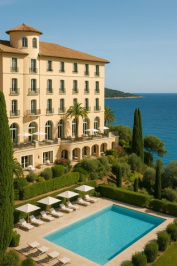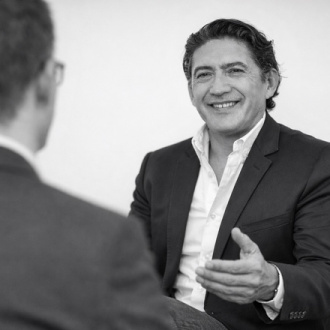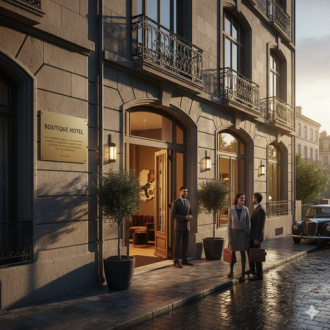
How to Buy a Hotel in France: A Practical Guide for International Investors
A Practical Guide for International Investors
How to Buy a Hotel in France: A Practical Guide for International Investors
If you’re thinking about buying a hotel in France, you’re not alone. France remains the world’s most visited country, and its hotel market continues to attract investors from Europe, the Middle East, Asia and the US. The combination of strong tourism fundamentals, stable regulations and high long-term value makes French hotels one of the most appealing asset classes in Europe.
But the process is different from residential real estate, and the legal and tax framework can feel complex when you’re not familiar with it. Here is a clear, investor-friendly guide to understanding how hotel acquisitions work in France — from the first contact to the final closing.
1. Understanding What You’re Buying
When you buy a hotel in France, you are not just buying a building. You’re buying a business, a cashflow engine, and often a brand.
There are several acquisition formats:
- Freehold (Real Estate + Operating Business): The most straightforward structure for investors.
You acquire:
- the walls (“murs”)
- the operating business (“fonds de commerce”)
This gives full control and long-term security.
- Business Only (Fonds de Commerce)
You buy the operating activity but not the property.
Suitable for operators or asset-light groups.
- Share Deal
You buy the shares of the company that owns the hotel.
This can optimise taxation but requires deeper due diligence.
- Lease-Driven Models
Some hotels operate under:
• a commercial lease (bail commercial)
• a management contract
• a franchise agreement
Your model will depend on your investment strategy and risk appetite.
- The Hotel Acquisition Process in France
Buying a hotel in France generally follows a structured and predictable path, especially when the transaction is handled by a specialised hotel broker.
- NDA & First Review
Before accessing financials, a Non-Disclosure Agreement is mandatory.
This step is quick, but essential.
- Access to Financial & Technical Information
You receive the hotel’s core documentation:
• past P&Ls and adjusted EBITDA
• RevPAR, occupancy and ADR trends
• staffing structure
• Capex history
• permits, zoning, diagnostics
• contracts (franchise, suppliers, leases)
This is where you understand the real economic engine of the hotel.
- Letter of Intent (LOI)
In France, serious buyers submit an LOI before an official site visit.
It outlines:
• your indicative price
• your timeline
• your financing plan
• the exclusivity period
This creates a professional framework for the acquisition.
- Due Diligence
This is the most critical phase. It usually lasts 4 to 8 weeks.
It includes:
- Technical Due Diligence
• structure, roofing, plumbing, electrical
• fire safety (very regulated in France)
• energy diagnostics
• accessibility compliance
• Capex requirements
- Financial Due Diligence
• restated EBITDA/EBE
• payroll analysis (labour costs are key in France)
• revenue segmentation
• taxes and social liabilities
- Legal Due Diligence
• ownership titles
• zoning rules (PLU) and constructability
• commercial contracts
• licensing rules for hotels (ERP)
A notary (notaire) supervises the transaction, ensuring legal security.
- Signing the Promissory Agreement
Called a Compromis de Vente or Promesse, depending on the structure.
This contract formalises the deal.
- Closing
Funds are transferred, documents are signed, and the buyer takes control.
Timeframe: typically 2 to 5 months after the LOI.
- How Taxation Works When Buying a Hotel in France
France offers a stable tax environment, but it’s essential to understand the basics.
- Acquisition Taxes
For freehold hotel purchases:
• Registration tax: ≈ 5–6%
• Notary fees: 1–2%
- VAT
Some hotel transactions include 20% VAT, depending on the structure and the investor’s status.
- Corporate Tax
Corporate income tax is 25% on net profits.
- Local Taxes
Hotels are subject to:
• Taxe Foncière (property tax)
• CFE (business tax)
- Capital Gains
Capital gains vary based on:
• holding structure (SCI, SAS, etc.)
• asset deal vs share deal
• ownership duration
With proper structuring, this can be optimised.
4. Financing a Hotel in France
Foreign investors can typically obtain 50–60% LTV financing from French banks, depending on:
• the hotel’s location (Paris, Riviera, Alps perform best)
• the quality and stability of the NOI
• the operator’s strength
Alternative financing includes:
• debt funds
• mezzanine loans
• seller financing (rare but possible)
- Why the French Hotel Market Is So Attractive
Investing in a French hotel means benefiting from:
• world-leading tourism demand
• strong domestic travel
• year-round occupancy in key regions
• limited supply in premium destinations
• predictable legal framework
• long-term capital appreciation
France remains a safe and resilient market for hospitality investment.
Buying a hotel in France can be a highly profitable and strategically smart investment — provided you understand the process, structure the deal properly and work with experienced local partners.
A clear sequence — NDA → LOI → Due Diligence → Promissory Agreement → Closing — ensures a smooth acquisition and protects both parties.
If you’re considering entering the French hotel market, the right advisory team makes all the difference.
From sourcing opportunities to structuring the deal, financial analysis and negotiation, specialised brokers bring clarity and security to each phase of the process.




